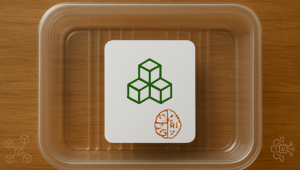Program Overview
This program explores how Smart Manufacturing 4.0 is transforming the industrial landscape through the convergence of automation, robotics, IoT connectivity, and data-driven intelligence. Participants will learn how cyber-physical systems, predictive analytics, and digital twins are revolutionizing factory operations, while understanding the people dimension — reskilling and redeploying talent for human–machine collaboration. Through industry case studies, live simulations, and expert-led frameworks, the session helps participants design actionable digital transformation roadmaps that enhance productivity, agility, and workforce readiness in an increasingly connected manufacturing ecosystem.
Features
- Understand the core technologies and enablers of Smart Manufacturing 4.0
- Apply Robotics, IoT, and Analytics to optimize factory operations and decision-making
- Identify digital skill gaps and develop workforce upskilling strategies for Industry 4.0 readiness
- Design a roadmap for implementing a connected, data-driven, and resilient manufacturing ecosystem
Target audiences
- Manufacturing and Operations Professionals
- Industrial Engineering Professionals
- Automation Professionals
- Analysts
- Quality Managers
Curriculum
- 5 Sections
- 25 Lessons
- 1 Day
Expand all sectionsCollapse all sections
- Industry 4.0 – Foundation & Evolution5
- 1.1Evolution from Industry 3.0 to 4.0 — Cyber-Physical Systems and Smart Factories
- 1.2Core Enablers: Robotics, IoT, AI, Cloud, Edge Computing, Digital Twins
- 1.3Smart Factory architecture and maturity frameworks (e.g., RAMI 4.0, PwC 4.0 Model)
- 1.4KPIs: OEE, MTTR, MTBF, throughput, and predictive maintenance impact
- 1.5Case study: Siemens, Bosch, Foxconn
- Robotics & IoT in Connected Manufacturing5
- 2.1Types of industrial robotics: collaborative robots (cobots), AGVs, AMRs, vision systems
- 2.2IoT-driven data acquisition, sensor integration, and edge analytics
- 2.3Digital threads and interoperability (OPC-UA, MQTT, 5G-enabled connectivity)
- 2.4Predictive maintenance, energy monitoring, and downtime reduction
- 2.5Discussion: smart production line scenarios and operational impact
- Data Analytics, AI & Digital Twins for Manufacturing Excellence6
- 3.1Data-to-insight cycle: descriptive → diagnostic → predictive → prescriptive
- 3.2AI/ML use cases: yield optimization, defect prediction, process anomaly detection
- 3.3Building and leveraging digital twins for real-time performance simulation
- 3.4Integration with MES, ERP, and SCADA for synchronized planning
- 3.5Use of control towers and dashboards for proactive decision-making
- 3.6Case study from automotive, pharma, and discrete manufacturing
- Workforce 4.0 – Reskilling for Digital Factories5
- 4.1Role of people in a cyber-physical manufacturing setup
- 4.2Skills of the future: digital literacy, data interpretation, cobot collaboration
- 4.3Change management and culture for continuous improvement
- 4.4Upskilling models: experiential learning, AR/VR simulations, microlearning platforms
- 4.5Exercise- Skill Heatmap & Digital Readiness
- Simulation Exercise – Designing a Smart Factory Roadmap4






